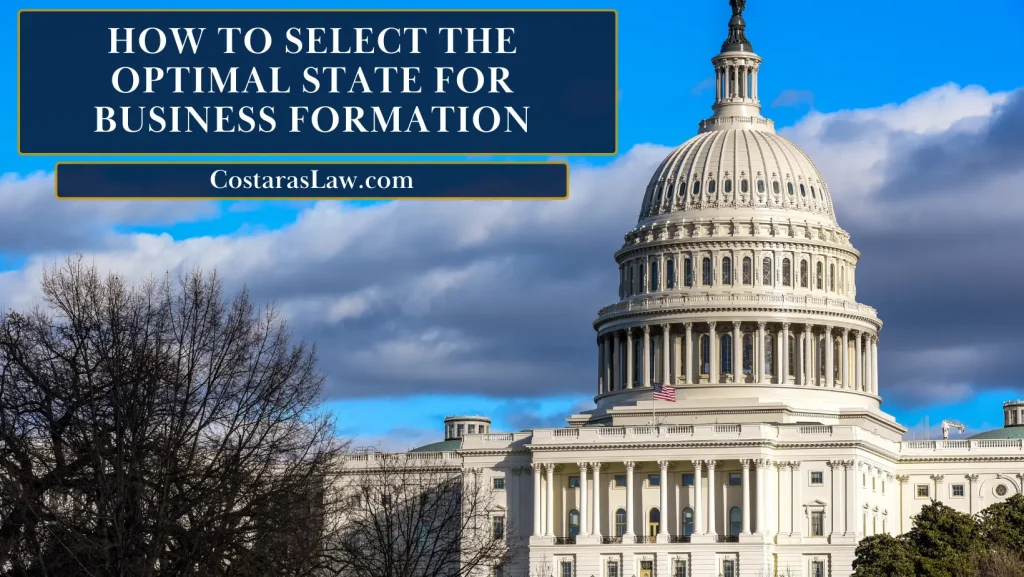How to Select the Optimal State for Business Formation

How to Select the Optimal State for Business Formation
Choosing the best state for your business formation is a crucial decision that can impact your business’s success. Each state has different regulations, tax implications, and advantages. This guide will help you understand the key factors to consider when selecting the optimal state for your business.
Consider Your Business Location
The most straightforward choice is often the state where you plan to conduct most of your business activities. This can simplify compliance and reduce the need to register as a foreign entity in another state.
Evaluate Tax Implications
Tax policies vary significantly from state to state. Consider the following:
- Corporate Income Tax: States like Nevada, South Dakota, and Wyoming have no corporate income tax, making them attractive for businesses.
- Personal Income Tax: States like Texas, Florida, and Washington have no personal income tax, which can benefit business owners.
- Sales Tax: States with low or no sales tax can reduce the cost of goods sold.
Analyze Legal Environment
The legal environment in a state can affect how easy or difficult it is to operate a business:
- Business-Friendly Regulations: States like Delaware are known for their business-friendly laws and efficient legal processes.
- Litigation Climate: States with a favorable litigation climate can reduce legal risks.
Consider State Incentives
Some states offer incentives to attract new businesses, such as tax credits, grants, and reduced regulations. Research what incentives might be available to your business type.
Assess Administrative Requirements
Different states have different administrative burdens, such as:
- Annual Reporting: Understand the frequency and complexity of required reports.
- Fees: Consider initial filing fees, annual fees, and other costs associated with maintaining your business in the state.
Analyze Market Opportunities
Consider the market opportunities in each state, including:
- Customer Base: Proximity to your target market can reduce shipping costs and improve customer service.
- Supply Chain: Access to suppliers and distributors can impact your business operations.
Consult with a Professional
Choosing the right state for business formation involves analyzing many factors. Consulting with a business attorney or accountant can provide valuable insights and help you make an informed decision.
Selecting the optimal state for your business formation is a strategic decision that can affect your business’s success. By considering factors such as tax implications, legal environment, state incentives, administrative requirements, and market opportunities, you can make the best choice for your business.
Need help deciding the best state for your business? Schedule a consultation with Nicholas Costaras for expert advice and personalized recommendations. Book your consultation now.
